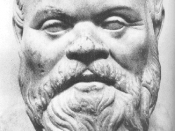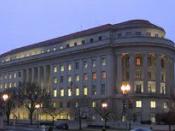Administrative law encompasses laws and legal principles governing the administration and regulation of government agencies (both Federal and state). Such agencies are delegated power by Congress (or in the case of a state agency, the state legislature) to act as agents for the executive. Generally, administrative agencies are created to protect a public interest rather than to vindicate private rights. So basically, the administrative law is the way in which judges oversee the decisions of those who work in the administrative or executive branch of the government. The question 'Who guards the guardians?' means: if we set judges to protect us from bureaucrats, how are we to protect ourselves from judges?
It's the duty of every citizen to watch and to evaluate the actions and policies of government, they are supported in this 'mission' by nongovernmental institutions, news media or different interest groups. But what are we watching for and how do we evaluate what we see? What makes a government decision good or bad, right or wrong? Judges only decide what is lawful, just or what is unlawful or unjust.
These questions depend on whether we believe that political life in general ought to be devoted to the satisfaction of individual preferences or the attainment of moral principles. There is a link to moral and political philosophy in defining these preferences and principles.
Connected to the name of Jeremy Bentham we can talk about utilitarianism - that means that every act is to be judged by its consequences - how many benefits it will bring at what costs. Utilitarianism is 'the greatest good of the greatest number' theory. It's connected with American democracy, in which the people can express their preferences by election.
There is a 'polyarchical' vision in pluralist political theory: different interest groups that share...


